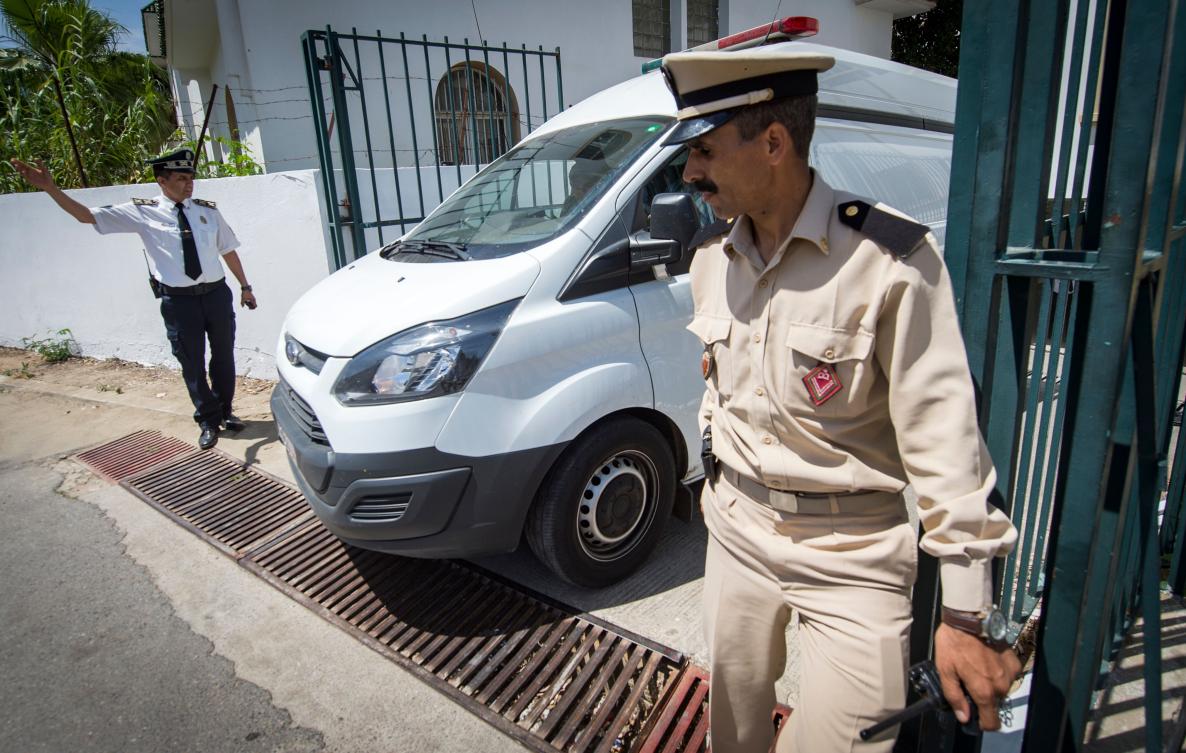Suspects back in Morocco court over Scandinavian hiker murders
SALE, Morocco: Two dozen extremist suspects charged over the murder of two Scandinavian women hiking in Morocco appeared in court Thursday, with the lawyer of one victim saying the government must be held “morally responsible” for the killings.
Danish student Louisa Vesterager Jespersen, 24, and 28-year-old Norwegian Maren Ueland had their throats slit while camping in an isolated area of the High Atlas mountains in December.
The main suspects, who allegedly pledged allegiance to Daesh, are all from the Marrakesh region near the site of the killings, which shocked the North African country.
Abdessamad Ejjoud, a 25-year-old street vendor and the alleged leader of the group, had been jailed for trying to join Daesh in Syria. He was released in 2015.
Younes Ouaziyad, a 27-year-old carpenter, and 33-year-old street vendor Rachid Afatti have also been named as key suspects.
The defendants were taken from prison to an anti-terrorism court in Sale, near Rabat, in vans escorted by police on motorcycles for the resumption of their trial, an AFP reporter said.
They face charges including promoting terrorism, forming a terrorist cell and premeditated murder.
They could face death sentences if found guilty, although Morocco has de facto suspended executions since 1993.
The families of the accused did not attend the court session.
The lawyer for the Jespersens, Khalid Elfataoui, said the government must be held “morally responsible” so the family could receive compensation, a request accepted by the court.
Elfataoui said he would push for death sentences “even if the countries where the victims came from are opposed to it in principle.”
The main suspects “spontaneously admitted their crime during the investigation, and today they regret what they did,” their lawyer Hafida Mekessaoui told AFP.
The trial — which opened on May 2 — was adjourned to May 30 after Thursday’s brief hearing.
Among the suspects is a Spanish-Swiss convert to Islam who is accused of teaching the main defendant how to use encrypted communications and fire a gun.
Nature lovers Jespersen and Ueland shared an apartment and went to Norway’s Bo University where they were studying to be guides.
They had traveled together to Morocco for their Christmas holidays.
Their lives were cut short in the foothills of Toubkal, the highest summit in North Africa, some 80 kilometers (50 miles) from the city of Marrakesh, a tourist magnet.
According to the charge sheet, the assailants traveled to the High Atlas mountains on December 12 on a mission to kill tourists.
Several potential targets were passed over because the foreigners were accompanied by guides or local residents.
It was four days before the killers selected their targets, according to the prosecution. It said two of them carried out the killings while the third filmed them on a telephone.
After the bodies were discovered, the Moroccan authorities were initially cautious, referring to a “criminal act” and wounds to the victims’ necks.
But that changed when the video surfaced showing a victim being beheaded.
A separate video published in the initial aftermath of the murders showed the alleged killers pledging allegiance to Daesh leader Abu Bakr Al-Baghdadi.
Investigators said the “cell” was inspired by Daesh ideology, but Morocco’s anti-terror chief insisted the accused had no contact with the extremist group in conflict zones.
Daesh has never claimed responsibility for the double murder.

Morocco court adjourns trial in murder of Scandinavian hikersNew social deal signed in Morocco, salaries to rise



